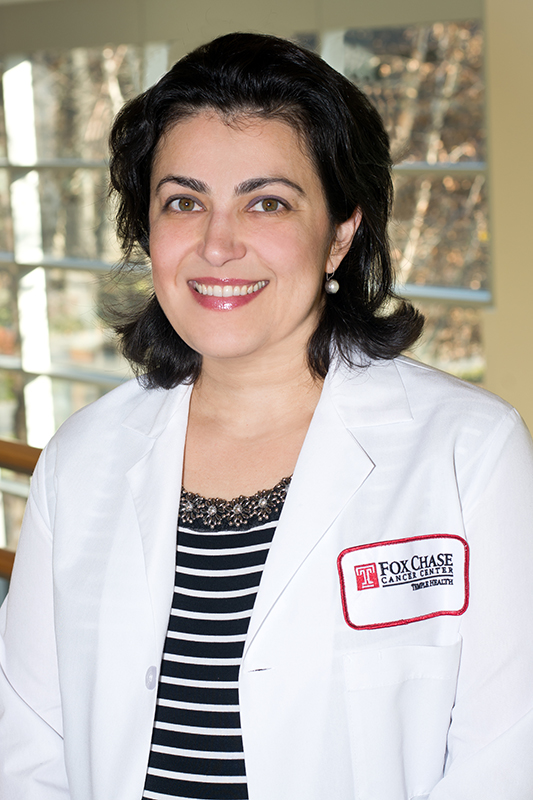The information presented in the Updates in Urologic Oncology eNewsletter is provided for physicians and other healthcare providers only and should not be shared with any current or future patients. If you are not a healthcare provider, we welcome you to sign up for Thrive eNewsletter to receive the latest information and blog highlights from Fox Chase Cancer Center.

The clinicians in Fox Chase Cancer Center’s Division of Urology and Urologic Oncology are accustomed to providing patients with specialized care and advanced treatment, but they are also dedicated to sharing their experience and educating other providers. Recently, two members of the group teamed up to write a chapter in Chemotherapy and Immunotherapy in Urologic Oncology: A Guide for the Advanced Practice Provider.
Fox Chase’s Elena Dreyzin, PA-C, an advanced practice provider, and Alexander Kutikov, MD, FACS, Chief of the Division of Urology and Urologic Oncology, authored a chapter titled “Kidney Cancer and Its Treatment” in the book written for advanced practice providers (APPs).


The number of oncology practices employing APPs in the United States is growing, and these professionals play a critical role in patient counseling, prescribing medications, treatment management, and follow-up visits.
“APPs are playing an expanding role caring for the urologic oncology patient. Meanwhile, urologic oncologic care is becoming increasingly complex. As such, robust continued education tools are more important than ever to help APPs stay abreast of current clinical care standards.” Dr. Kutikov said.
In the book chapter, Dreyzin details the initial visit of a 42-year-old man, using the pseudonym “KC”, at the beginning of his journey with renal cell carcinoma. Microhematuria was found three years in a row during KC’s annual urine screening test, and a CT scan showed a 5.0 cm enhancing lesion on his left kidney.
“I tried to structure the chapter in an interesting way that would not be the same format you get from UpToDate or Google,” Dreyzin said. “Reading a lot of articles can be very dry, and I wanted to make it more interesting by tying it to a specific case.”
Throughout the chapter, Kutikov and Dreyzin walk through the importance of imaging studies for patients with early neoplasms and the appropriate use of renal biopsy. Because treatment for renal cell carcinoma can include a variety of treatment regimens (active surveillance, focal ablation, partial or radical nephrectomy, targeted therapies, or immunotherapies) they also discussed the influence of staging on treatment decision before going into more detail about each treatment option.
As for KC, Dreyzin concludes that he underwent a robotic partial nephrectomy and was diagnosed with a Grade 3 clear cell renal cell carcinoma. His treatment plan included close follow-up with his urologic oncologist and APPs for further imaging and blood work.
The chapter also includes advice for APPs on managing kidney masses, including referral to the National Comprehensive Cancer Network’s guidelines.